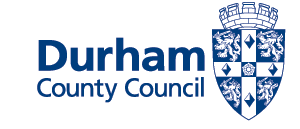Help if you are receiving direct payments
Support and information is available to help you manage your direct payments.
If you use your direct payments to employ a personal assistant (PA), you can find support and advice around managing your employees and information on how to recruit. If you use an agency, you can find information on things you need to consider such as checking CQC registration. This page also includes information about arranging and making payments and guidance about changes to your direct payments.
If you use your Direct Payments to employ a Personal Assistant (PA)
If you choose to use your Direct Payments to employ a Personal Assistant you will be responsible for the recruitment and employment process including DBS checks, data protection and redundancy. Find out more on our Direct Payments - employing someone to help you as a Personal Assistant (PA) page.
If you use your direct payments to pay an agency or organisation
If you use your direct payments to pay an agency or organisation there are some things you will need to consider. Find out more on Buying services from an agency or organisation.
If you use your direct payments to pay someone who is self-employed
If the person you choose to provide your care tells you that they are self-employed, further information about the things that you will need to consider is available on Direct Payments and self-employed workers.
If you use your direct payments for something else
If your care and support plan identifies a different way you can spend your direct payments, such as attending clubs or groups, technology to help your daily living or one-off payments for an alternative to respite care, we will help you so you know what information you need to keep for your audit.
Arranging and making payments
- Direct Payments Card: Direct payments cards are a flexible, fast and convenient way to manage your direct payments. You don't need to open a separate bank account and you can use them to pay in person, set up direct debits and standing orders, pay for services by telephone or on the internet.
- Direct Payments - payments schedule: Find out the latest payment dates.
- Paying your client contribution: Following a financial assessment, you may have been asked to pay a contribution towards the cost of your care and support. There are two ways in which your client contribution can be paid, based on how your direct payment is paid to you.
- Direct Payments - managed accounts: If you have a managed account, your chosen payroll company will open an account on your behalf. This will be an individual bank account solely used for your direct payments funding and accessible only by the payroll company.
Changes to your direct payments
If your care and support needs have changed
If you feel your care needs have changed and you want to make changes to your direct payments, you will need to speak to your social worker or care coordinator. They will agree any changes to your care and support plan with you and let us know what changes are required and if you need any support to make those changes.
If you receive direct payments for a child or young person
When your child reaches the age of 18, changes will need to be made to their direct payments. You can find out more about this on our Direct Payments - moving from children's to adult services page.
If you no longer want to receive direct payments
You can find out more about this on the Ending your Direct Payments page.
If we need to stop your direct payments
In some circumstances we may need to stop your direct payments. Your direct payments agreement has details of why we may stop direct payments. If you are unsure why your direct payments are being stopped please contact us or speak with your social worker or care coordinator.
- Email directpayments@durham.gov.uk
- Telephone 03000 268 200

 Share this page on Facebook
Share this page on Facebook
 Share this page on Twitter
Share this page on Twitter
 Print this page
Print this page





